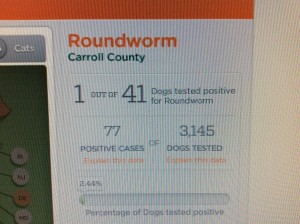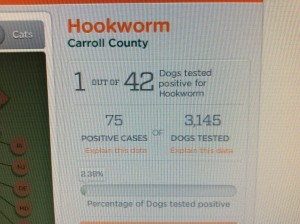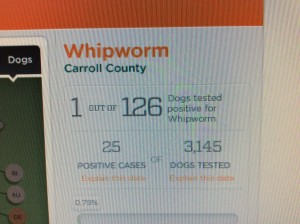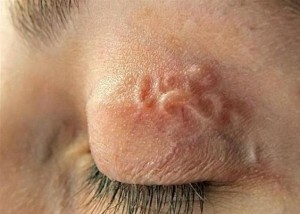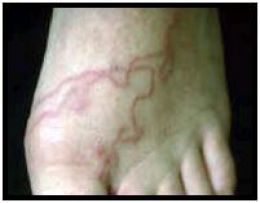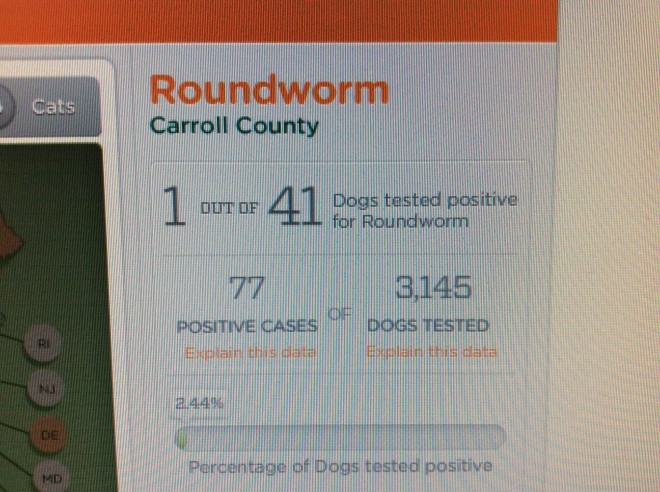
Parasites: your pets and your family
Intestinal parasites are a common problem in cats and dogs. It is a very real problem in our area as seen by the pictures above. Roundworms, hookworms and whipworms are the most common intestinal parasites in our furry friends. Not only can these parasites cause problems for your pet, but both roundworms and hookworms can be transmitted to humans as well. Parasites are transmitted by ingesting the eggs that are shed in stool. While most adults practice good hygiene that generally prevents ingestion of parasitic eggs, our kids do not always wash their hands before putting them in their mouths. We recommend testing your pet’s fecal sample for parasites at least once a year as a part of routine preventative health.
Above is a picture of a person who has roundworms. They can migrate to the eyes and cause blindness.
Above is a person who has hookworms. They can burrow up into the body through your feet.
Starting October 1st, we are offering an improved fecal test that detects these parasites up to 1 month earlier and up to 2 time
s more sensitive. Traditional fecal tests look for the eggs of the parasites. This means the parasite has gone through the entire life cycle and is shedding eggs into the stool (and your environment). The thing is, pets do not shed eggs in every stool sample so there is a change that the fecal will be negative and they could still have worms. Newer technology allows us to run an ELISA test that detects antigens from the parasites even in the earliest stages of infection. This means we can find infections up to 30 days earlier and start treatment sooner and is considered the gold standard by the Companion Animal Parasite Council (CAPC). We still recommend that all pets remain on their monthly preventatives to help prevent infection in the first place. For more information, you can visit https://www.capcvet.org

